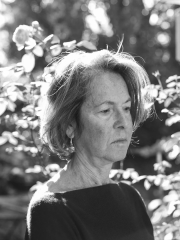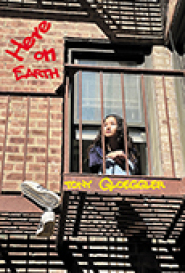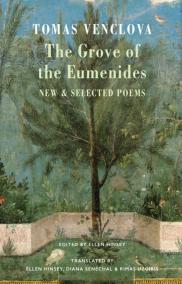
A Tribute to Louise Glϋck
1943 - 2023
The passing of Louise Glϋck on October 13th, 2023 was a tremendous loss to the poetry community world-wide, and to the literary world in general. Born in New York City on April 22nd, 1943, Glϋck was known as an autobiographical poet, as her poetry incorporated emotional intensity, often times touching on aspects of her life involving various traumas she suffered, as well as using nature as a reference point for some of her poems.
While Glϋck was born in New York City, she was raised on Long Island. Her mother, Beatrice Grosby, became the bride of Daniel Glϋck, and Louise was the elder of two surviving daughters. While still a young child, Glϋck’s parents taught her Greek Mythology, and the young girl began writing poetry at an early age. Throughout her young life, she suffered from anorexia nervosa, and during the fall of her senior year of high school, began psychoanalytic treatment. While Glϋck attended Sarah Lawrence College and Columbia University, she never did attain a degree. She credited several years of therapy with helping her learn how to cope with her various emotional difficulties, still managing to attend poetry workshops. From 1963-1966 she attended Columbia University’s School of General Studies. She studied with Stanley Kunitz, and credited him with helping her develop her talent as a poet. This is when she began to publish her poems.
I feel in any appreciation of a poet such as Louise Glϋck, the tendency can be to focus on the various conditions she dealt with throughout her life – leaving less focus on the actual work of the poet. While there is no doubt her poetry was influenced by the events of her life, I feel her poems can be interpreted on many levels. From her debut collection, Firstborn -- published by The New American Library in 1968 -- until her last collection, Winter Recipes from the Collective (Farrar, Straus, and Giroux, 2021) -- she focused on the personal and the confessional – but always made sure to include shades of light. Her poem, “Decade”, from The Seven Ages— tackles loss and deep shock, but ends the poem on a hopeful note: “And the life/filling again/And finally a place/Found for everything.” Yes, she was a confessional poet. But even the best confessions may allow for humor and light. In her career she received many awards – The Pulitzer Prize in 1993 for The Wild Iris – along with other collections receiving many nominations for awards and recognition.
Louise Glϋck’s career was long and illustrious. Her work is often compared to another autobiographical/confessional poet, Sylvia Plath. The similarities are there: personal hardships, personal poetry. What I believe separates the two is Glϋck managed to use her hardships to fuel her work; to persevere – almost a middle finger to the world and beyond. This is not a criticism of Plath; I am a great admirer of her work. However, I feel Plath -- at the end of her life, anyway -was truly spent and possibly felt there was nothing more to say. We all know how the life of Sylvia Plath ended. I believe Glϋck always thought there was more to say, even if it wasn’t “pretty.” She was grit and soul, the real stuff. And in the “real” stuff she managed to find herself and persevere.
To summarize a poet with the amount of poetry Louise Glϋck managed to put out in her lifetime is near impossible – and anyone who is interested in finding out more about her life and work can conduct a cursory internet search and find a wealth of material. I would highly encourage anyone interested in discovering more about Louise Glϋck and her poetry, to check out her collected poems (Louise Glϋck, Poems 1962-2012, Farrar, Straus, and Giroux). This amazing collection covers her entire career. Of course, she produced more work after 2012 -- which is highly recommended -- but this collection is the bulk of her wonderful, vivid poetry.
In closing, I would like to include my favorite poem from this amazing woman. It is incredibly hard to pick one poem; when an author has such a large catalogue, one can pass over many wonderful pieces. For me, this poem symbolizes the life and work of the author. There will be hard times, but one must never, ever give up. A cliché, yes. But sometimes a cliché is truthful, and just what you need.
The Undertaking
The darkness lifts, imagine, in your lifetime.
There you are – cased in clean bark you drift
Through weaving rushes, fields flooded with cotton.
You are free. The river films with lilies,
Shrubs appear. Shoots thicken into palm. And now
All fear gives way: the light
Looks after you, you feel the waves’ goodwill
As arms widen over the water; Love,
The key is turned. Extend yourself---
It is the Nile, the sun is shining,
Everywhere you turn is luck.
Louise Glϋck from the collection THE HOUSE ON MARSHLAND, 1975
(Included in Louise Glϋck, Poems 1962-2012)
Godspeed to a wonderful poet.
Cathy Porter
Cathy Porter's poetry has appeared in Plainsongs, Homestead Review, California Quarterly, Hubbub, Cottonwood, Comstock Review, and various other journals. She has several chapbooks available from Finishing Line Press, Dancing Girl Press, and Maverick Duck Press. Bodies Of One Breath is forthcoming in 2024 from Dancing Girl Press. Cathy has been nominated for several Pushcart Prizes. She lives in Omaha, NE.


